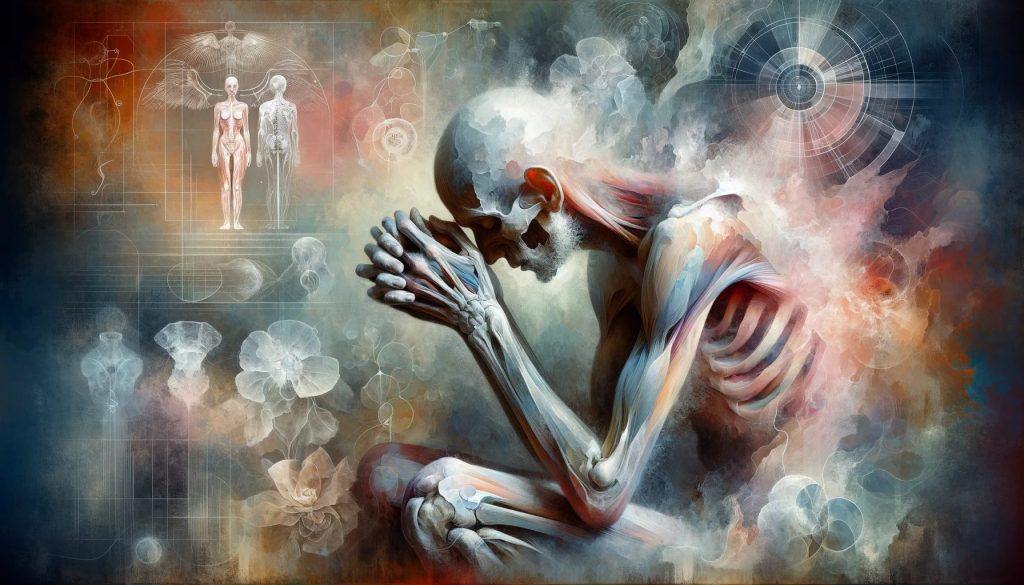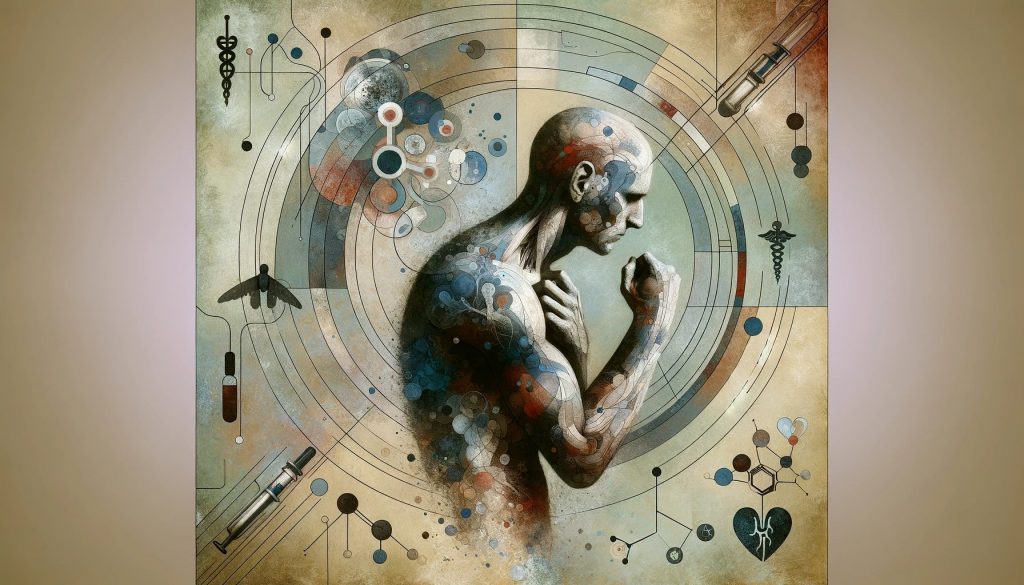Do you or someone you love suffer from a chronic medical condition that is eligible for treatment through medical cannabis? If so, discussing the option of obtaining a Maryland Medical Cannabis Commission card may be worth considering.
Many people are unaware of which conditions qualify and what it takes to get your MMCC card, but never fear – we’re here to walk you through the process! We’ll break down all the need-to-know information about qualifying conditions, how to apply for an MMCC card, and, most importantly, what potential health benefits you could experience after receiving your MMCC card. Let’s dive in!
What is the Medical Cannabis Program?

The Medical Cannabis Program is a regulated system established in Maryland to provide legal access to medical cannabis for patients with qualifying medical conditions. The MMCC is the Maryland Medical Cannabis Commission. It allows patients to obtain a Medical Marijuana Card, granting them access to licensed dispensaries to purchase medical cannabis products.
Why Obtain an MMCC Card?

Obtaining an MMCC card also known as an MCA card (Maryland Cannabis Administration) offers numerous benefits and advantages to patients seeking alternative medical treatment options.
1. Access to Medical Cannabis Products: An MMCC card grants medical marijuana patients legal access to these products, allowing them to explore its potential health benefits in treating various medical conditions.
2. Approved Qualifying Conditions: The MMCC program recognizes various qualifying conditions, such as chronic pain, severe pain, and other medical conditions, ensuring that medical cannabis patients with different medical needs can find relief.
3. Extensive Selection at Licensed Dispensaries: MMCC cardholders can purchase medical cannabis products, including flowers, edibles, oils, and topicals, from licensed dispensaries offering a wide variety of options to suit individual preferences.
4. Enhanced Treatment Options: Medical cannabis can serve as an alternative or complementary treatment option alongside traditional medical treatments, giving patients more choices in managing their conditions.
5. Minors Eligibility: The MMCC program allows minors to be eligible for a medical cannabis card, provided they have consent from a parent or legal guardian, providing access to potential relief for young patients with qualifying conditions.
6. Reliable Product Quality: Through the MMCC program, patients can trust that their medical cannabis products are sourced from registered state-licensed physicians and adhere to strict quality standards, ensuring potency and safety.
7. Ease of Application: The online application process for an MMCC card is simple, allowing patients to conveniently apply from the comfort of their homes, saving time and effort.
8. Privacy and Confidentiality: The MMCC program assures patients of the utmost privacy and confidentiality in their medical cannabis journey, protecting sensitive health information.
9. Affordability and Cost Savings: Medical cannabis products purchased through licensed dispensaries are often competitively priced, and some patients may also be eligible for cost-saving programs to make their medication more affordable. You also DO NOT need to pay recreational taxes if you have your MMCC card, which saves you quite a bit of money throughout the course of the year.
10. Legal Protection: Possessing an MMCC card provides patients with legal protection and peace of mind, ensuring they can access medical cannabis without fear of legal repercussions.
Obtaining an MMCC card unlocks a range of benefits and treatment options, empowering patients to explore the potential of medical cannabis in managing their health conditions effectively.
Who is Eligible To Qualify For An MMCC Card?

The Maryland Cannabis Administration has established a medical marijuana program that allows individuals with certain health conditions to obtain a medical card. This registration card opens up a world of possibilities for patients seeking alternative or complementary treatment options to manage their conditions.
The MMCC program recognizes various qualifying conditions. This ensures that individuals with diverse medical needs can explore the potential health benefits of medical cannabis.
1. Cachexia or Wasting Syndrome

Cachexia, also known as Wasting Syndrome, is a medical condition that affects individuals suffering from chronic illnesses such as cancer, HIV/AIDS, and other debilitating diseases. This condition is characterized by weight loss, muscle atrophy, fatigue, and loss of appetite, leading to a significant decline in overall health and quality of life.
Traditional medical treatments may not always provide the desired relief or improvement in symptoms for individuals diagnosed with cachexia. This is where medical cannabis comes into the picture as a potential treatment option.
Medical cannabis has been shown to address the symptoms associated with cachexia. The cannabinoids found in cannabis, particularly THC and CBD, have been found to stimulate appetite, reduce nausea, and promote weight gain. These effects can greatly benefit cachexia patients by helping them regain their appetite, improve their nutrition intake, and ultimately maintain a healthier weight.
In addition to managing the physical symptoms, medical cannabis has been reported to improve mood and overall well-being in cachexia patients. It can relieve the emotional distress caused by the condition and enhance the patient’s overall quality of life.
2. Anorexia

Anorexia, also known as anorexia nervosa, is a serious eating disorder affecting millions worldwide. It is characterized by an intense fear of gaining weight, a distorted body image, and a relentless pursuit of thinness. While anorexia primarily affects young girls and women, it can also occur in males.
Medical cannabis has been shown to address some of the symptoms associated with anorexia. The cannabinoids found in cannabis, particularly THC and CBD, have been found to stimulate appetite and reduce nausea. These effects can greatly benefit anorexia patients who struggle with the loss of appetite and food aversion. By increasing appetite and reducing nausea, medical cannabis can help patients reestablish a healthier relationship with food and promote weight restoration.
Moreover, medical cannabis has also been reported to help manage the anxiety and depression associated with anorexia. The mood-enhancing properties of cannabis can relieve the emotional distress caused by the disorder and improve the patient’s overall well-being.
3. Severe or Chronic Pain

One of the advantages of medical cannabis is its ability to offer pain relief without the same risk of addiction or overdose associated with opioid medications. This can significantly benefit patients who require long-term pain management without the fear of developing dependence on opioids.
Patients with severe or chronic pain must work closely with their healthcare providers to determine the correct dosage and strain of medical cannabis that best suits their needs. Tailoring the treatment plan to individual circumstances is crucial to optimize the pain-relieving benefits while minimizing potential side effects.
4. Severe Nausea

Severe nausea can arise from various causes, including chemotherapy treatment, gastroenteritis, migraines, and certain medical conditions. Finding an effective treatment option for individuals experiencing severe nausea is paramount to regaining control over their daily activities.
Medical cannabis can provide relief without the side effects commonly associated with traditional antiemetic medications. These medications often have unwanted side effects, such as drowsiness, dry mouth, and constipation. Medical cannabis offers a potentially safer and more natural alternative for managing nausea without these undesirable effects.
5. Seizures

Seizures are a neurological disorder characterized by sudden, uncontrolled bursts of electrical activity in the brain. These episodes can range from mild to severe and cause various physical and emotional symptoms. Research suggests that cannabinoids in medical cannabis, specifically CBD, may have anticonvulsant properties. CBD has been shown to interact with the brain’s endocannabinoid system, which regulates neuronal activity and can help reduce the frequency and severity of seizures.
Medical cannabis provides relief with fewer side effects compared to traditional anti-seizure medications. Many prescription drugs to treat seizures can adversely affect patients, including drowsiness, dizziness, fatigue, and cognitive impairment. Medical cannabis, on the other hand, has been reported to have milder side effects, with research suggesting a lower risk of cognitive impairment.
6. Severe or Persistent Muscle Spasms

Severe or persistent muscle spasms are involuntary contractions that can cause intense pain and discomfort and limit a person’s ability to perform daily activities. Research suggests that cannabinoids in medical cannabis, such as THC and CBD, may have muscle relaxant properties. These compounds interact with the body’s endocannabinoid system, which regulates muscle contractions and movements. By targeting specific receptors in the central nervous system, medical cannabis can help reduce the frequency and intensity of muscle spasms.
Medical cannabis also provides relief without the harsh side effects associated with traditional muscle relaxant medications. Many prescription drugs used to treat muscle spasms can cause drowsiness, dizziness, and sedation, making it difficult for individuals to carry out their daily activities. Medical cannabis, however, has been reported to have milder side effects, with research suggesting a lower risk of sedation and cognitive impairment.
7. Glaucoma

Glaucoma is a medical condition that affects the eyes and can lead to vision loss if left untreated. It is characterized by increased pressure within the eye, known as intraocular pressure, which damages the optic nerve. This damage gradually impairs the optic nerve’s ability to transmit visual information to the brain, resulting in the loss of peripheral vision and, if not controlled, potentially leading to complete blindness.
The use of medical cannabis has shown promise in managing the symptoms of glaucoma. Research suggests that the cannabinoids found in cannabis, particularly THC, can help reduce intraocular pressure, relieving individuals with glaucoma. By targeting the endocannabinoid system within the eye, medical cannabis can help regulate and lower eye pressure, potentially slowing down the progression of the disease.
8. Post-Traumatic Stress Disorder (PTSD)

Post-traumatic stress disorder (PTSD) is a debilitating condition that affects individuals who have experienced or witnessed a traumatic event. Whether it’s a natural disaster, military combat, a serious accident, or any other life-altering event, PTSD can significantly impact a person’s mental and emotional well-being. Fortunately, growing evidence suggests that medical cannabis can offer relief to those suffering from PTSD.
The use of medical cannabis for PTSD has gained traction due to its ability to help manage the symptoms associated with this condition. Cannabinoids like THC and CBD interact with the endocannabinoid system, which regulates stress responses and emotions. By targeting this system, medical cannabis can potentially alleviate anxiety, nightmares, insomnia, and hypervigilance – all common symptoms of PTSD.
Other Chronic Medical Conditions
In addition to PTSD, individuals in Maryland with other chronic medical conditions may also be eligible for a medical cannabis card through the MMCC. These conditions must be severe and have not responded well to other treatments.
Medical cannabis has shown promising results in helping manage symptoms of various chronic conditions, including but not limited to chronic pain, multiple sclerosis, Crohn’s disease, epilepsy, and cancer-related symptoms.
Applying for an MMCC Card

To legally obtain medical cannabis in Maryland, residents must follow a three-step process.
Step 1: Register as a patient with MMCC
Adult patients who are 18 years and older can register as a patient by reviewing the process overview provided by the Maryland Medical Cannabis Commission (MMCC). For minor patients under 18, at least one caregiver must always be assigned to their account. Only parents or legal guardians aged 21 or older can care for minor patients. Caregivers need to register with the Commission before registering the minor patient. Additional forms, including notarized documents, may be required for registering a minor patient.
Step 2: Obtain a written certification from a registered provider
Once registered, patients must obtain a valid written medical cannabis certification from a provider registered with the MMCC. The provider must have a bona fide provider-patient relationship with the patient and approve medicinal cannabis as a treatment option for a qualifying medical condition. Qualifying medical conditions include chronic pain, severe nausea, seizures, glaucoma, post-traumatic stress disorder (PTSD), and other chronic medical conditions with ineffective treatments. Providers with active, unrestricted licenses in good standing and registered to prescribe controlled substances in Maryland are eligible to register with MMCC.
Step 3: Visit a licensed Maryland dispensary
After registration and obtaining a valid written certification, patients can visit licensed Maryland dispensaries to purchase medical cannabis. Patients must present their MMCC ID card at the dispensary, where the agent will verify the certification before allowing any transactions. Patients are limited to buying a maximum of a thirty-day supply of medical cannabis at one time. Medical cannabis patients are able to possess and purchase up to 120 grams of flower and/or 36 grams of cannabis concentrate.
As per the guidelines set by MCA, this process ensures that patients receive safe and regulated access to medical cannabis for their qualifying conditions.
Take the First Step: Unlock the Potential of MMCC Cards

Are you suffering from chronic pain or a debilitating medical condition? Taking the first step towards unlocking the potential of MMCC cards is as simple as registering as a patient and obtaining a valid written certification. Don’t let your chronic symptoms hold you back from finding relief. Contact Greenway Consults at 410-762-8745 to schedule an appointment and start your journey toward obtaining an MMCC card. Our experienced team is dedicated to helping individuals who qualify for the program navigate the application process and receive the medical cannabis treatment they deserve.

 410-762-8745
410-762-8745